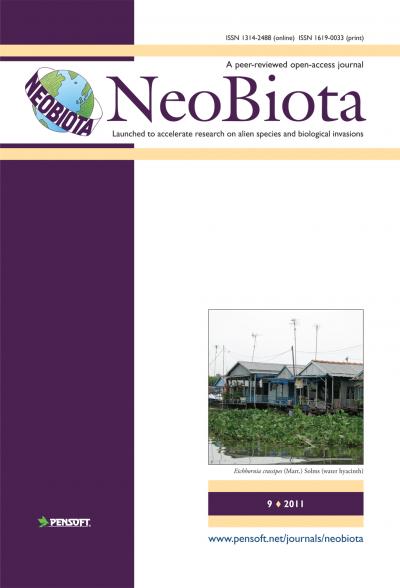Burmese pythons in Florida: A synthesis of biology, impacts, and management tools
IF 3
2区 环境科学与生态学
Q1 BIODIVERSITY CONSERVATION
引用次数: 7
Abstract
Burmese pythons (Python molurus bivittatus) are native to southeastern Asia, however, there is an established invasive population inhabiting much of southern Florida throughout the Greater Everglades Ecosystem. Pythons have severely impacted native species and ecosystems in Florida and represent one of the most intractable invasive-species management issues across the globe. The difficulty stems from a unique combination of inaccessible habitat and the cryptic and resilient nature of pythons that thrive in the subtropical environment of southern Florida, rendering them extremely challenging to detect. Here we provide a comprehensive review and synthesis of the science relevant to managing invasive Burmese pythons. We describe existing control tools and review challenges to productive research, identifying key knowledge gaps that would improve future research and decision making for python control.佛罗里达州的缅甸蟒蛇:生物学、影响和管理工具的综合
缅甸蟒蛇原产于亚洲东南部,然而,在整个大沼泽地生态系统中,佛罗里达州南部的大部分地区都有一个既定的入侵种群。蟒蛇严重影响了佛罗里达州的本土物种和生态系统,是全球最棘手的入侵物种管理问题之一。这种困难源于难以接近的栖息地和蟒蛇神秘而坚韧的天性的独特结合,蟒蛇在佛罗里达州南部的亚热带环境中繁衍生息,这使得它们极难被发现。在这里,我们对管理入侵缅甸蟒蛇的相关科学进行了全面的回顾和综合。我们描述了现有的控制工具,并回顾了生产性研究面临的挑战,确定了关键的知识差距,这些差距将改善python控制的未来研究和决策。
本文章由计算机程序翻译,如有差异,请以英文原文为准。
求助全文
约1分钟内获得全文
求助全文
来源期刊

Neobiota
Agricultural and Biological Sciences-Ecology, Evolution, Behavior and Systematics
CiteScore
8.10
自引率
7.80%
发文量
0
审稿时长
6 weeks
期刊介绍:
NeoBiota is a peer-reviewed, open-access, rapid online journal launched to accelerate research on alien species and biological invasions: aquatic and terrestrial, animals, plants, fungi and micro-organisms.
The journal NeoBiota is a continuation of the former NEOBIOTA publication series; for volumes 1-8 see http://www.oekosys.tu-berlin.de/menue/neobiota
All articles are published immediately upon editorial approval. All published papers can be freely copied, downloaded, printed and distributed at no charge for the reader. Authors are thus encouraged to post the pdf files of published papers on their homepages or elsewhere to expedite distribution. There is no charge for color.
 求助内容:
求助内容: 应助结果提醒方式:
应助结果提醒方式:


